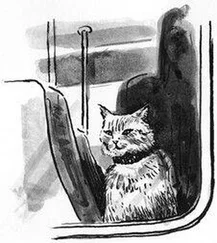Garp knew what to take for courses and whom to have for teachers. That is often the difference between doing well or poorly in a school. He was not really a gifted student, but he had direction; many of his courses were still fresh in Jenny's mind, and she was a good drillmaster. Garp was probably no more of a natural at intellectual pursuits than his mother, but he had Jenny's powerful discipline; a nurse is a natural at establishing a routine, and Garp believed in his mother.
If Jenny was remiss in her advice, it was in only one area. She had never paid any attention to the sports at Steering; she could offer Garp no suggestions as to what games he might like to play. She could tell him that he would like East Asian Civilization with Mr. Merrill more than he would like Tudor England with Mr. Langdell. But, for example, Jenny did not know the differences in pleasure and pain between football and soccer. She had observed only that her son was small, strong, well balanced, quick, and solitary; she assumed he already knew what games he liked to play. He did not.
Crew, he thought, was stupid. Rowing a boat in unison, a galley slave dipping your oar in foul water and the Steering River was indeed foul. The river was afloat with factory scum and human turds—and always the after-tide, salt-water slime was on the mudflats (a muck the texture of refrigerated bacon fat). Everett Steering's river was full of more than mud, but even if it had been sparkling clean, Garp was no oarsman. And no tennis player, either. In one of his earliest essays—his freshman year at Steering—Garp wrote: “I do not care for balls. The ball stands between the athlete and his exercise. So do hockey pucks, and badminton birdies—and skates, like skis, intrude between the body and the ground. And when one further removes one's body from the contest by an extension device—such as a racket, a bat, or a stick—all purity of movement, strength, and focus is lost.” Even at fifteen, one could sense his instinct for a personal aesthetic.
Since he was too small for football, and soccer certainly involved a ball, he ran long distance, which was called cross-country, but he stepped in too many puddles and suffered all fall from a perpetual cold.
When the winter sports season opened, Jenny was distressed at how much restlessness her son exhibited; she criticized him for making too much of a mere athletic decision—why didn't he know what form of exercise he might prefer? But sports did not feel like recreation to Garp. Nothing felt like recreation to Garp. From the beginning, he appeared to believe there was something strenuous to achieve. ("Writers do not read for fun,” Garp would write, later, speaking for himself.) Even before young Garp knew he was going to be a writer, or knew what he wanted to be, it appears he did nothing “for fun.”
Garp was confined to the infirmary on the day he was supposed to sign up for a winter sport. Jenny would not let him get out of bed. “You don't know what you want to sign up for, anyway,” she told him. All Garp could do was cough.
“This is silly beyond mortal belief,” Jenny told him. “Fifteen years in this snotty, rude community and you fall to pieces trying to decide what game you're going to play to occupy your afternoons.”
“I haven't found my sport, Mom,” Garp croaked. “I've got to have a sport.”
“Why?” Jenny asked.
“I don't know,” he moaned. He coughed and coughed.
“God, listen to you,” Jenny complained. “ I'll find you a sport,” she said. “I'll go over to the gym and sign you up for something.”
“No!” Garp begged.
And Jenny pronounced what was for Garp, in his four years at Steering, her litany. “I know more than you do, don't I?", she said. Garp fell back on his sweaty pillow.
“Not about this , Mom,” he said. “You took all the courses but you never played on any of the teams .”
If Jenny Fields recognized this as a rare oversight, she did not admit it. It was a typical Steering December day, the ground glassy with frozen slush and the snow gray and muddy from the boots of eight hundred boys. Jenny Fields bundled up and trudged across the winter-grim campus like the convinced and determined mother she was. She looked like a nurse resigned to bring what slim hope she could to the bitter Russian front. In such a manner Jenny Fields approached the Steering gym. In her fifteen years at Steering, Jenny had never been there; she had not known it was important. At the far end of the Steering campus, ringed by the acres of playing fields, the hockey rinks, the tennis courts like the cross section of a huge, human hive, Jenny saw the giant gymnasium loom out of the dirty snow like a battle she had not anticipated, and her heart filled with worry and with gloom.
The Seabrook Gymnasium and Field House—and the Seabrook Stadium, and the Seabrook Ice Hockey Rinks—were named after the superb athlete and World War I flying ace Miles Seabrook, whose face and massive torso greeted Jenny in a triptych of photographs enshrined in the display case in the gym's vast entrance-way: Miles Seabrook, '09, his head in a leather football helmet, his shoulder pads probably unnecessary. Beneath the photo of old No. 32 was the near-demolished jersey itself: faded and frequently under the attack of moths, the jersey lay in a heap in the locked trophy case under the first third of Miles Seabrook's triptych photograph. A sign said: HIS ACTUAL SHIRT.
The center shot in the triptych showed Miles Seabrook as a hockey goalie—in those old days the goalies wore pads, but the brave face was naked, the eyes clear and challenging, the scar tissue everywhere. Miles Seabrook's bulk filled the dwarfed net. How could anyone have scored on Miles Seabrook, his cat-quick and bear-sized leather paws, his club-like stick and swollen chest protector, his skates like the long claws of a giant anteater? Beneath the football and the hockey pictures were the scores of the annual big games: in every Steering sport, the season ended in the traditional contest with Bath Academy, nearly as old and famous as Steering, and every Steering schoolboy's hated rival. The vile Bath boys in their gold and green (in Garp's day, these colors were called puke and baby-shit): STEERING 7, BATH 6; STEERING 3, BATH 0. Nobody scored on Miles.
Captain Miles Seabrook, as he was called in the third photo in the triptych, stared back at Jenny Fields in a uniform all too familiar to her. It was a flyboy's suit, she saw in an instant; although the costumes changed between world wars, they did not change so much that Jenny failed to recognize the Reece-lined collar of the flight jacket, turned up at a cocky angle, and the confident, untied chin strap of the flight cap, the tipped up earmuffs (miles Seabrook's ears could never get cold!), and the goggles pushed carelessly up off the forehead. At his throat, the pure white scarf. No score was cited beneath this portrait, but if anyone in the Steering Athletic Department had possessed a sense of humor, Jenny might have read: UNITED STATES 16, GERMANY 1. Sixteen was the number of planes Miles Seabrook shot down before the Germans scored on him.
Ribbons and medals lay dusty in the locked trophy case, like offerings at an altar to Miles Seabrook. There was a battered wooden thing, which Jenny mistook for part of Miles Seabrook's shot-down plane; she was prepared for any tastelessness, but the wood was only all that remained of his last hockey stick. Why not his jock? thought Jenny Fields. Or, like a keepsake of a dead baby, a lock of his hair? Which was, in all three photos, covered by a helmet or a cap or a big striped sock. Perhaps, Jenny thought—with characteristic scorn—Miles Seabrook was hairless.
Jenny resented the implications lying honored in that dusty case. The warrior-athlete, merely undergoing an other change of uniform. Each time the body was offered only a pretense of protection: as a Steering School nurse, Jenny had seen fifteen years of football and hockey injuries, in spite of helmets, masks, straps, buckles, hinges, and pads. And Sergeant Garp, and the others, had shown Jenny that men at war had the most illusory protection of all.
Читать дальше












